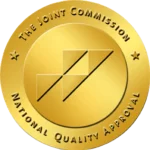What Is an Outpatient Program?
An outpatient program is a structured, supportive treatment setting that offers help for people who are recovering from substance addiction, mental illness, or both.
Outpatient programs (OPs) represent a medium level of care. Because addiction and mental illness vary in severity, treatment is offered with greater and lesser degrees of structure, depending on how much direct care (time with a healing professional) is necessary for an ill individual to get better.
Greater structure, intensity, and frequency of treatment are offered to those needing higher levels of care. Fewer treatment hours per week are administered when people do not need as much direct support at this stage of their journey.
Outpatient programs represent a sort of “in-between” option, where people can receive varying levels of intensity while living in their own homes and working jobs. Within outpatient programs, there are differing levels of intensity, so it is possible to taper down the level of care gradually.
Alternatively, some people just starting out on their recovery journey, who are not so very ill to begin, may receive a lesser frequency of services by virtue of the fact that less intervention is needed for them to show improvement.
The stages of structured care offered in OPs are often pre-determined, such that a set number of weeks or a number of sessions are required to be completed before graduating to the next phase. Phases of less structure mean higher self-responsibility, greater ability to navigate risk, and less direct intervention by the therapeutic support team.
Outpatient programs offer different tracks for people requiring different levels of support, and so may have daylong, half-day options, and twice-weekly offerings. OPs are designed to provide some flexibility for work and family life.
Since the goal of all treatment programs is to be able to live one’s life independently, as well as more happily and meaningfully again, treatment is organized around what is truly needed in the current stage of recovery in order to be able to handle autonomy and experience well-being.

 Outpatient programs offer treatment in different forms, all directed toward supporting the healing force within an individual to thrive.
Outpatient programs offer treatment in different forms, all directed toward supporting the healing force within an individual to thrive.

 The goal of Villa Kali Ma’s addictions program is long-term sobriety. We assist each woman with the intention that she is able to find and sustain the beauty, dignity, and meaning of life on the other side of addiction.
The goal of Villa Kali Ma’s addictions program is long-term sobriety. We assist each woman with the intention that she is able to find and sustain the beauty, dignity, and meaning of life on the other side of addiction.



